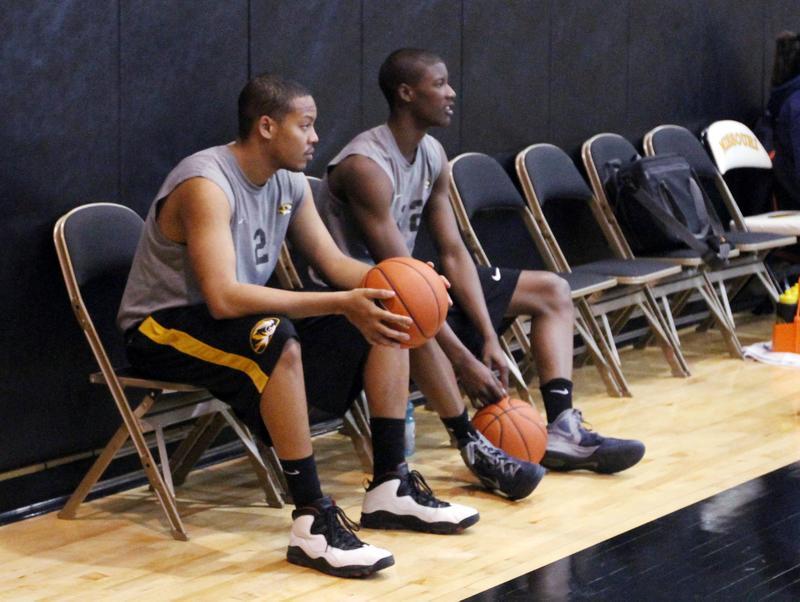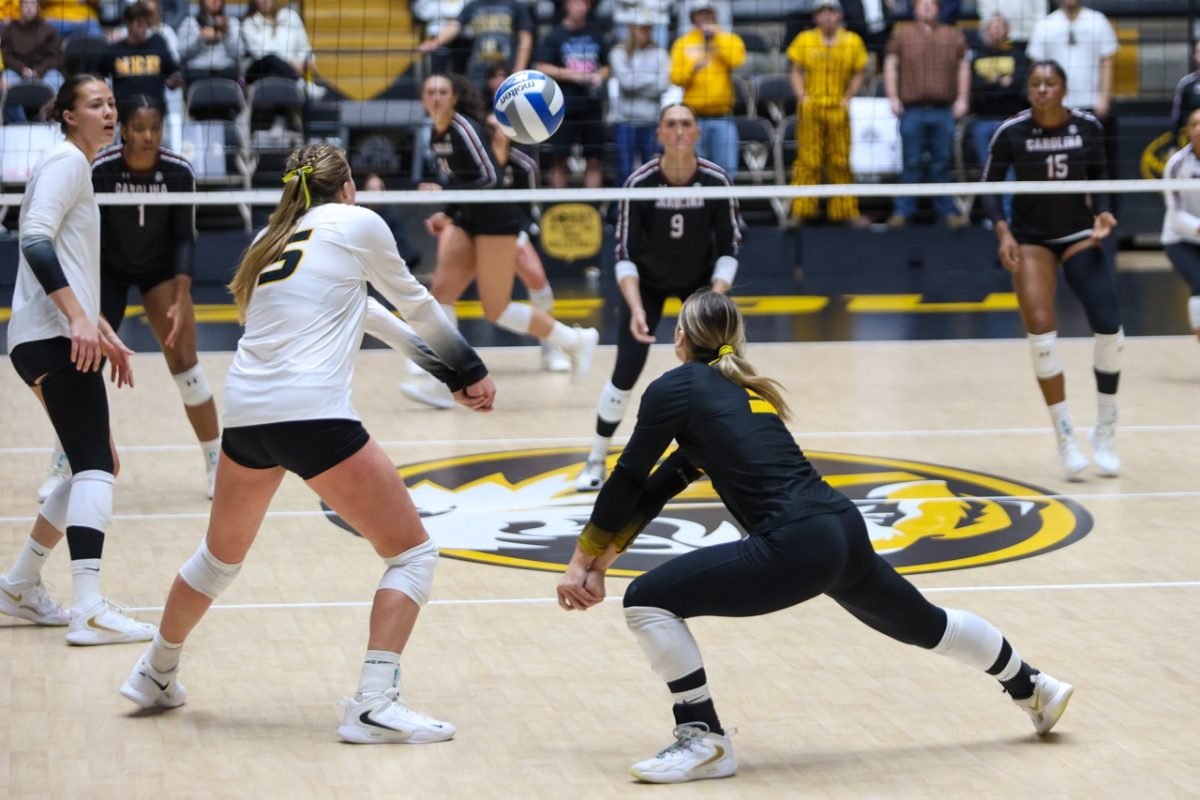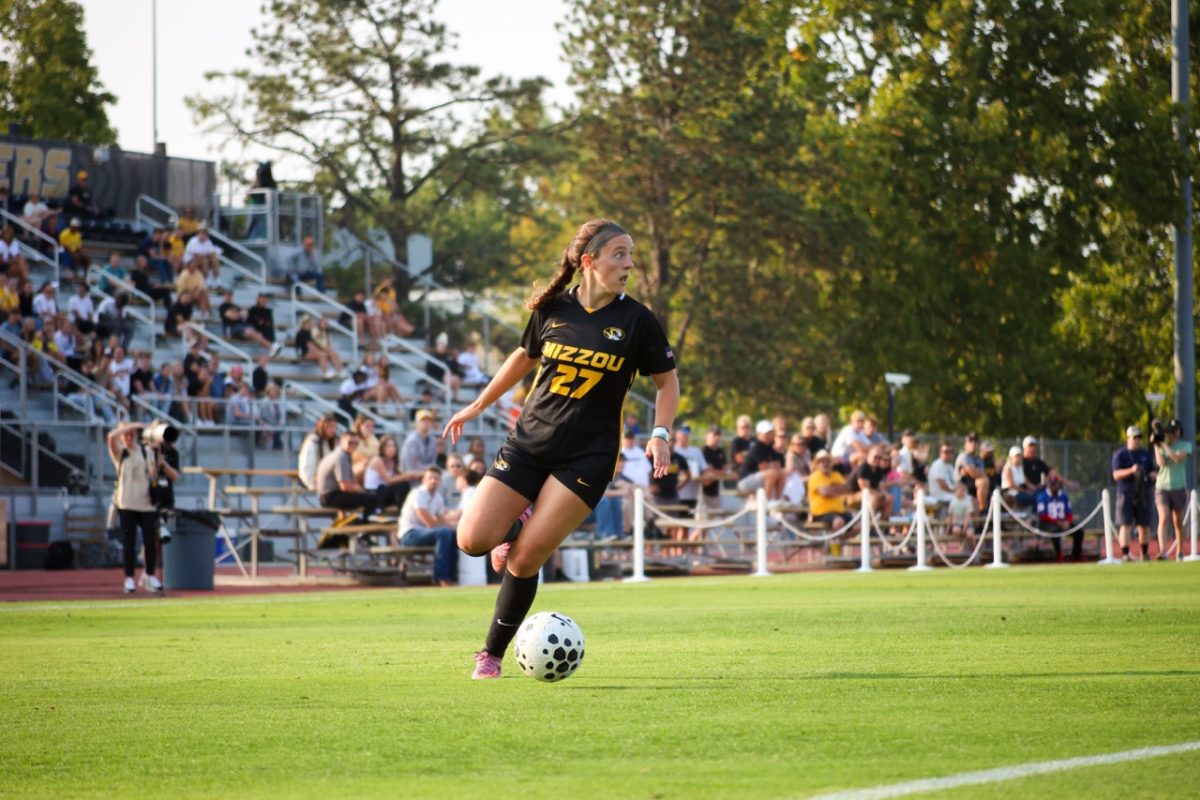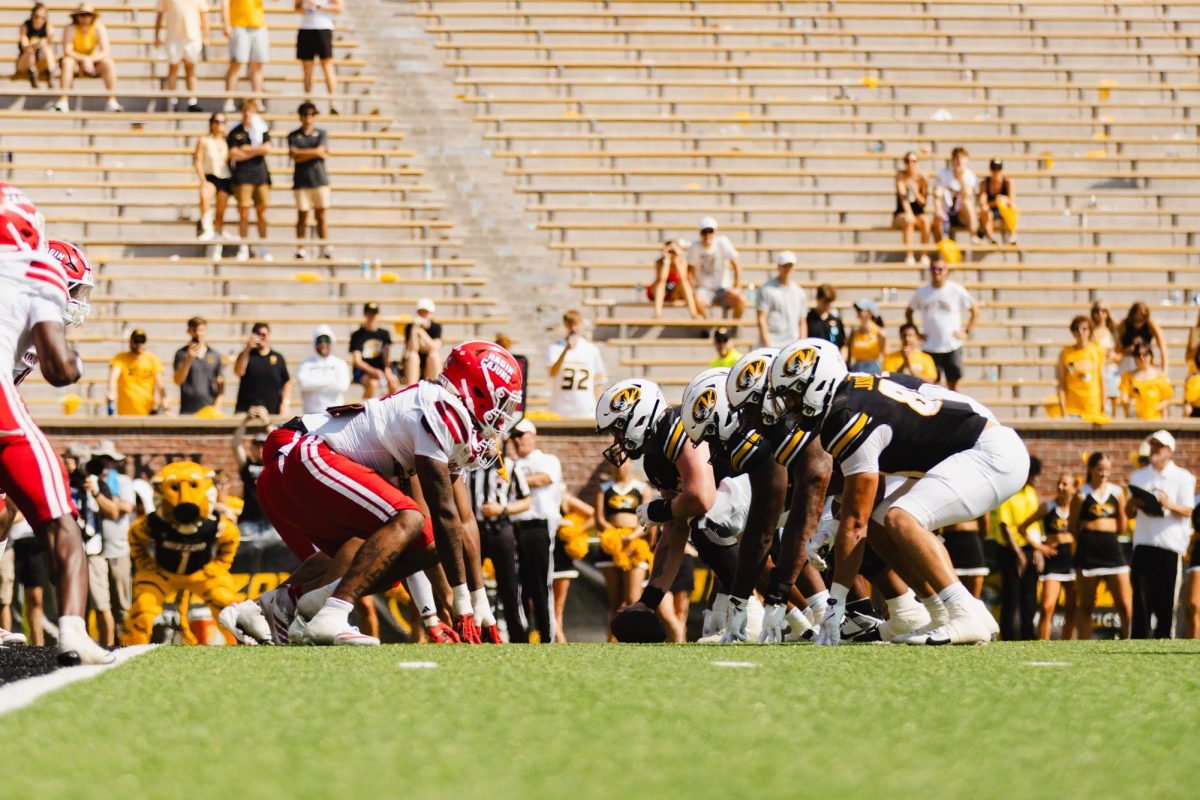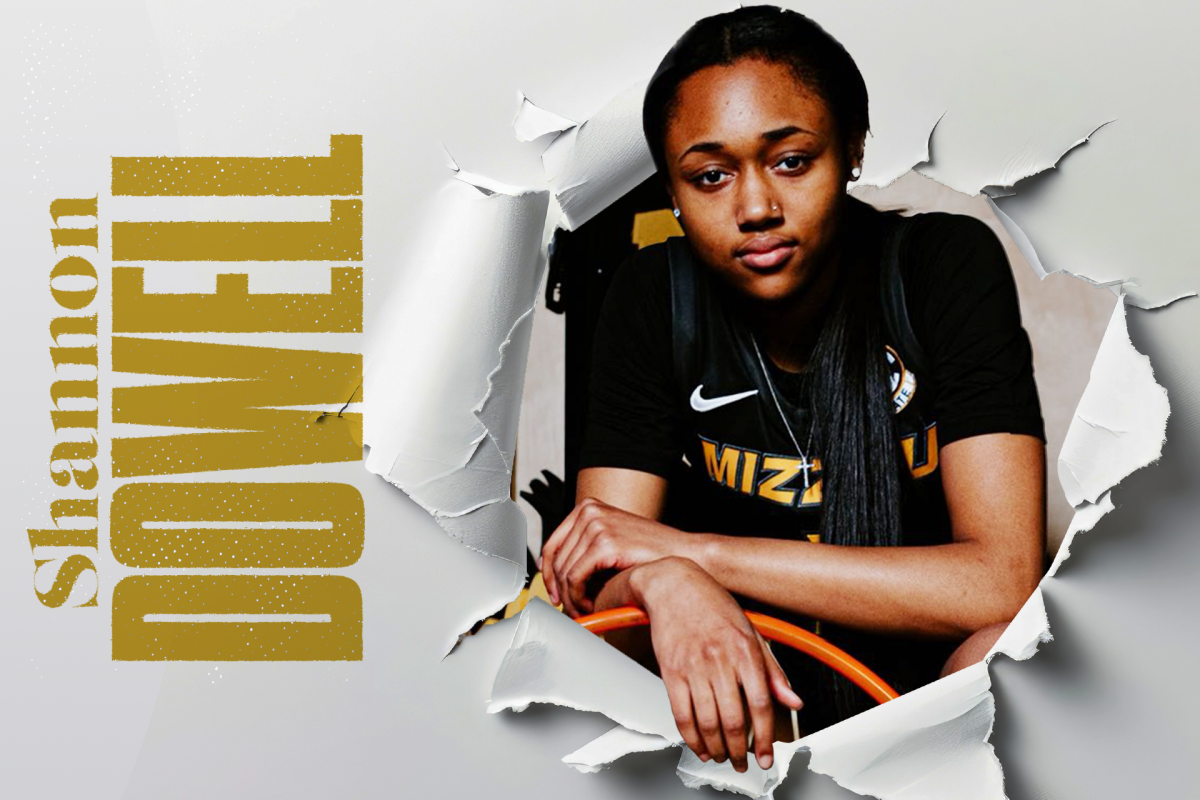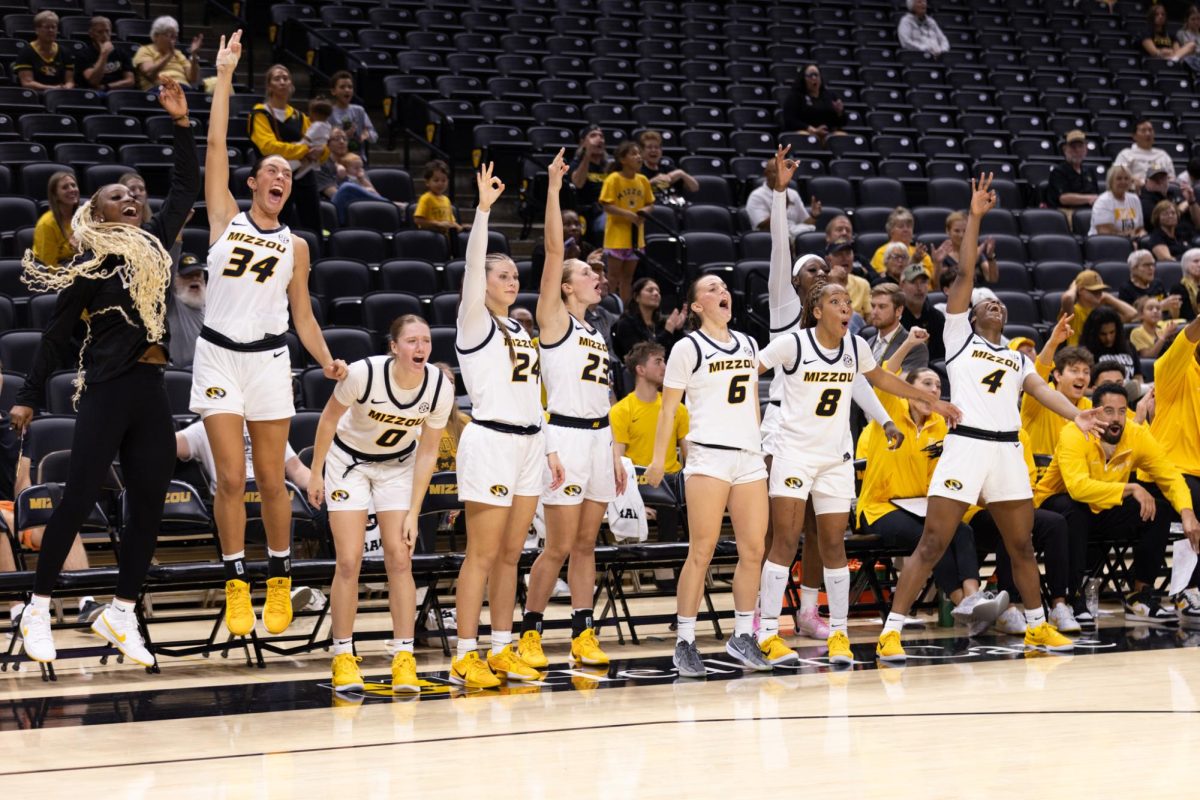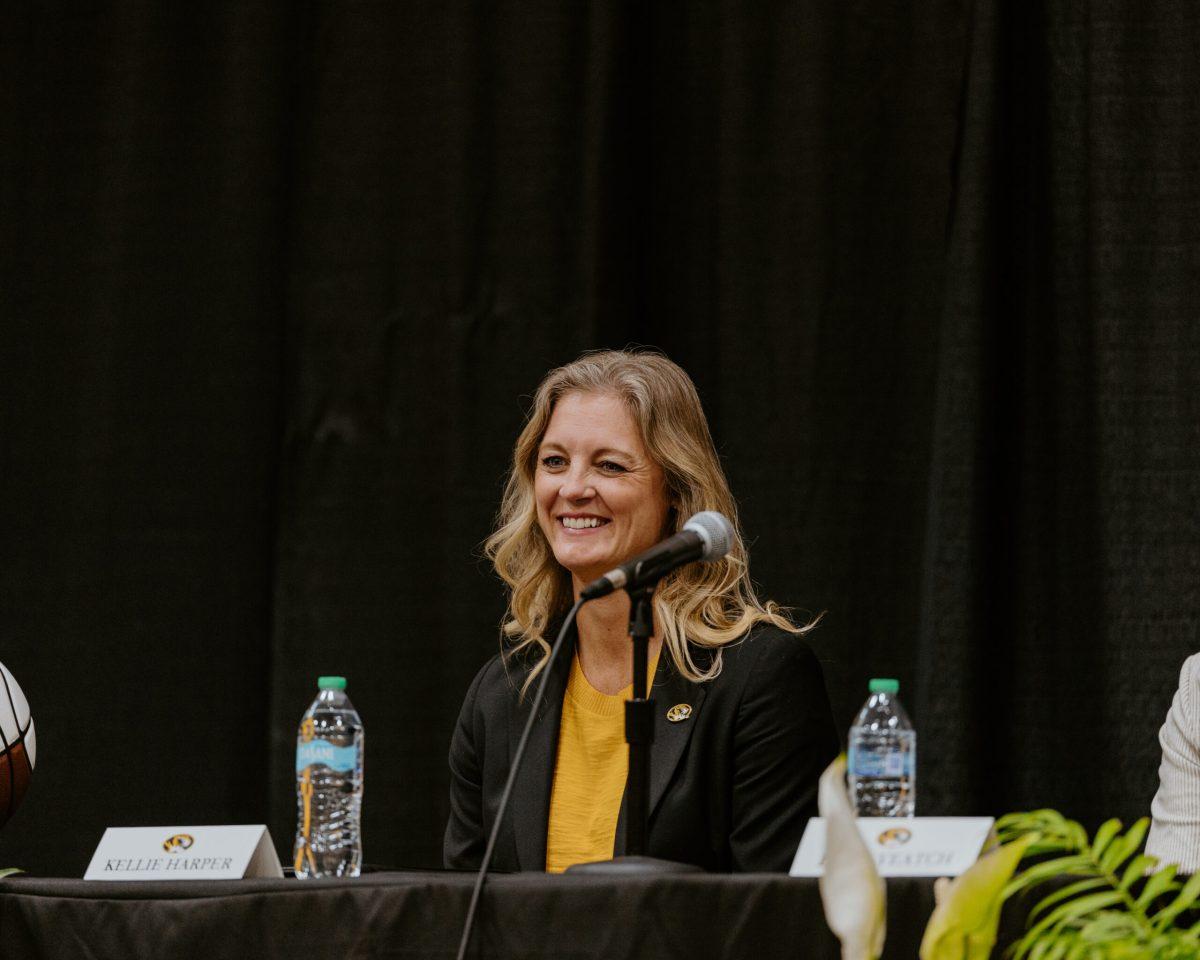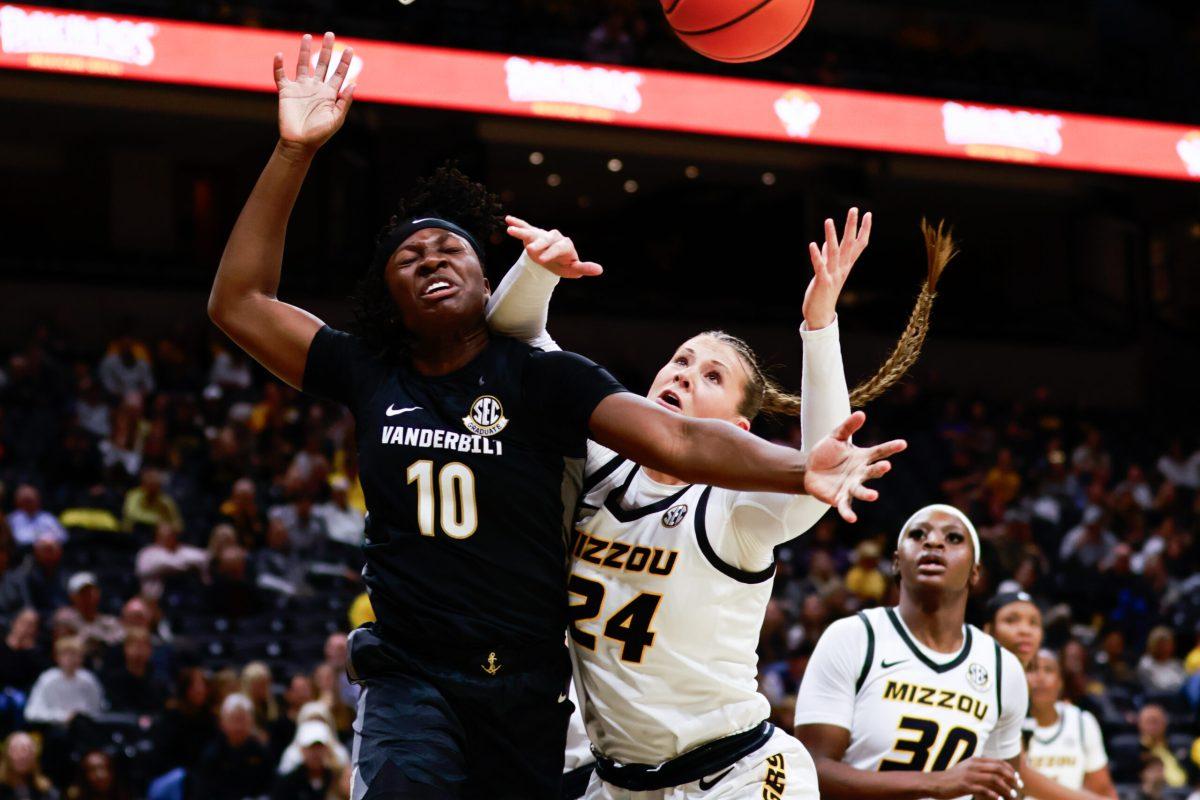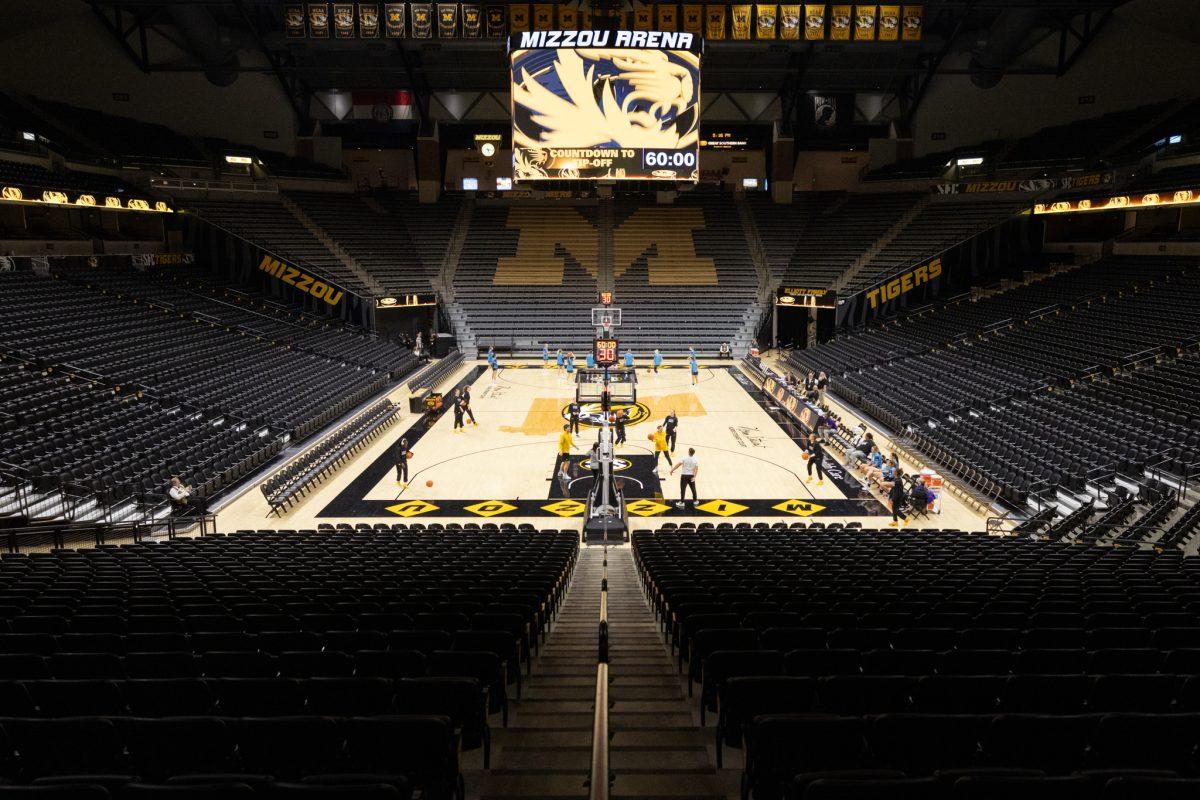It’s 2:23 p.m. on a Tuesday, and Michael Luechtefeld is practicing in Mizzou Arena.
He’s wearing a custom Nike Dri-FIT T-shirt. It’s gray with a Mizzou logo over the left part of his chest, and the number 12 on the front and back. It’s a uniform.
Luechtefeld has an athletic build that shows in his sleeveless shirt. He’s got a smooth handle and rocks the ball around his right leg back in front of his body.
Luechtefeld is part of a group of men that serve as practice players for the Missouri women’s basketball team. Most played high school basketball, but they didn’t expect to do this. Some have gotten more out of the experience than court time.
—-
The practice players look more like a intramural squad than a part of a Division I basketball program. Some of them play together on the same intramural team, and according to Luechtefeld, they have great chemistry.
None of the men are extremely tall, most a little over 6-foot-2, others much shorter. Some are chubby. Some are muscular.
Mike Donovan, Missouri’s director of video operations who is in charge of the practice players, said all of the 10 men could play at some level collegiately — some at Division I.
They wear uniforms to practice but not of the same type as the women they practice against. Their jerseys aren’t reversible. Their shorts are black with a gold stripe running down each side. They aren’t provided with sneakers, something that is made evident by one practice player whose bright shoes don’t match with his uniform.
When the practice players warm up, they don’t run drills or make layup lines. They shoot at one of six baskets surrounding the court, freestyling moves and shooting from wherever they feel.
They don’t stretch together after they make their way to the court.
And when the women step onto the floor to warm up for practice, the men move to the side.
—-
They ended up on the practice squad in different ways.
Some, like Luechtefeld, who played high school basketball in Washington, Mo., learned about the opportunity through other practice players while playing at the MU Student Recreation Complex.
“At first I had no idea what to expect,” Luechtefeld said. “But I said, ‘Yeah I’ll give it a shot and see if I like it.’ I really do.”
Others, like senior Michael Hurst and junior Brandon Hebert, learned about the practice squad after failing to walk-on to the men’s basketball team.
Mizzou’s then-associate women’s coach Randy Norton, now the coach at University of Alabama at Birmingham, reached out to Hebert.
“If you want to keep playing, if you want to keep competitive, come hang out with the girls team,” Hebert recalled Norton saying to him. “Come see what we’re about.”
Before any of them came to a practice, they didn’t know what to expect. Maybe they’d just be bodies — stand-ins for players to dodge during drills.
They aren’t.
Said Hebert of coach Robin Pingeton: “She keeps us in line just as much as the girls.”
Hurst didn’t know how competitive it would be.
“At first I didn’t know what to expect because they are girls,” Hurst said. “I didn’t want to come out here and push them down or anything. But after a while, you know, it’s still basketball.”
And it has been more than basketball for some.
Last year, Luechtefeld and fellow practice player Michael Scott went fishing with senior forward Bri Kulas, redshirt freshman guard Lindsey Cunningham and then-senior Sydney Crafton.
Hebert is friends with junior guard Bree Fowler. They have taken three classes together.
“It’s like a big extended family,” Hebert said.
That’s enough of a reason for some practice players, all of whom are unpaid volunteers, to come five practices per week. The sessions are not mandated. The men choose to come.
—-
Mike Donovan is in charge of the 10 practice players.
He’s familiar with what’s expected of practice players. He was one.
Donovan served as practice player for Pingeton when she was at Illinois State.
He played at Lindenwood. When playing time didn’t work out, he transferred. That, he thought would be the end of his organized playing career.
“I didn’t even know they had scout teams,” Donovan said.
Ultimately, he found out about the Illinois State scout team while playing at university’s recreation complex. He was scout a player for three years. Then, Donovan served one year as an assistant at Eureka College before following Pingeton to Missouri.
Donovan didn’t expect to become a part of the college coaching ranks as soon as he did.
“I thought I was going to be a high school coach and work my way up for 30 years,” he said. “I did not imagine it happening that quickly for me.”
Donovan said his pathway to coaching isn’t common among practice players. Not all of them want to be coaches in the future. Most don’t coach out of college as quickly as he has.
But he’s not the only practice player turned SEC coach.
Michael Scruggs, an assistant coach at Louisiana State, was a practice player at Tennessee when now-LSU coach Nikki Caldwell was an assistant for the Volunteers.
Said Donovan of his career ascension: “I just kind of grabbed the opportunity and ran with it. It’s been great.”
—-
During the second half of Mizzou’s 62-57 loss on Jan. 23 to Texas A&M, there was a prize giveaway for a member of the student section. The crowd of 1,185 gave a half-hearted cheer as a student with slightly curly, blond hair — one of the few students in attendance — was recognized on the court.
The student was Luechtefeld. He said he and the practice players like coming to support the women and see how they develop from practice to games.
At no time during the promotion was the crowd told of Luechtefeld’s involvement with the Tigers’ program. Since the Mizzou Athletics marketing staff doesn’t work with the Tigers’ basketball operations, the person who picked Luechtefeld for the giveaway likely didn’t know of his role with the Tigers either.
As Luechtefeld returned to his spot in the Mizzou Arena bleachers as the timeout ended, it was in keeping with his role with the Missouri women’s basketball team.
He was part of the night, just not a part many recognized. He’s a member of the Tiger program, just not one many see.


